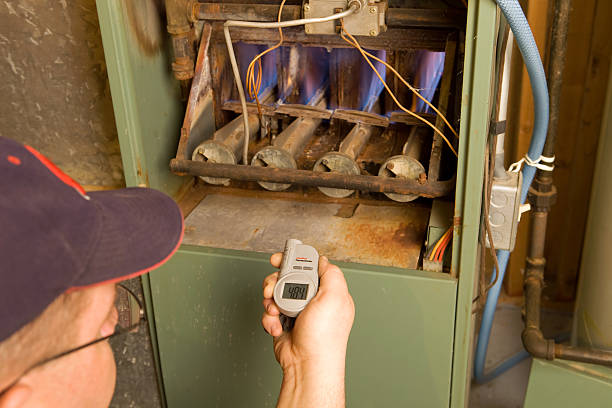As the chill of winter sets in, the last thing you want is for your heating system to fail. Yet, like any mechanical system, heaters can encounter issues that require prompt attention. In this guide, we’ll explore everything you need to know about heating repair, from common problems to the importance of professional heating system contractors.
Understanding Heating Systems
Before delving into repair, it’s essential to understand the basics of heating systems. Most homes rely on either furnaces or boilers for heat. Furnaces distribute warm air through ducts, while boilers circulate hot water or steam through pipes to radiators or radiant floor systems.
Common Heating Problems
- No Heat: One of the most alarming issues is when your heater fails to produce any warmth. This could be due to a malfunctioning thermostat, pilot light, or ignition system.
- Uneven Heating: Rooms that are significantly colder or warmer than others indicate issues with ductwork, zoning systems, or airflow restrictions.
- Strange Noises: Banging, whistling, or rattling sounds can signal problems such as loose components, clogged burners, or airflow obstructions.
- Frequent Cycling: If your heater turns on and off too frequently, it could be a sign of a malfunctioning thermostat, dirty air filters, or improper equipment sizing.
- Increased Utility Bills: A sudden spike in heating costs without a corresponding increase in usage could indicate inefficiencies or malfunctions within the system.
DIY Troubleshooting While some heating issues require professional intervention, there are several troubleshooting steps you can take yourself:
- Check the thermostat settings and replace batteries if necessary.
- Inspect air filters and replace them if dirty or clogged.
- Ensure all vents and registers are open and unobstructed.
- Verify that the circuit breaker or fuse controlling the furnace or boiler is functional.
The Importance of Professional Heating Repair
While DIY troubleshooting can address minor issues, complex problems demand the expertise of trained professionals. Heating system contractors possess the knowledge, experience, and tools to diagnose and repair a wide range of issues safely and efficiently. Here’s why professional intervention is crucial:
- Safety: Heating systems involve potentially dangerous components such as gas lines, electrical connections, and combustion chambers. Professionals have the training to handle these hazards safely.
- Accuracy: Proper diagnosis is essential for effective repairs. Professionals can identify underlying issues that may not be immediately apparent, preventing future breakdowns.
- Efficiency: Professional heating repair ensures that your system operates at peak efficiency, minimizing energy waste and reducing utility costs.
- Warranty Compliance: Attempting DIY repairs on your heating system may void manufacturer warranties. Hiring a licensed contractor ensures that repairs are performed in accordance with warranty requirements.
Choosing the Right Contractor
When selecting a heating system contractor, consider the following factors:
- Experience: Look for contractors with a proven track record of successful repairs and installations.
- Licensing and Certification: Ensure that the contractor holds the necessary licenses and certifications required by your state or municipality.
- Insurance: Verify that the contractor carries liability insurance to protect against any damage or injuries that may occur during the repair process.
- References: Ask for references from past clients and check online reviews to gauge the contractor’s reputation.
- Written Estimate: Obtain a detailed written estimate outlining the scope of work and associated costs before proceeding with any repairs.
Conclusion
A malfunctioning heating system can quickly turn winter into a chilly ordeal. By understanding common heating problems, performing basic troubleshooting, and enlisting the help of professional heating system contractors, you can ensure that your home remains warm and comfortable throughout the coldest months of the year. Don’t wait until the mercury drops to address heating issues—take proactive steps to keep the warmth alive in your home.


Recent Comments